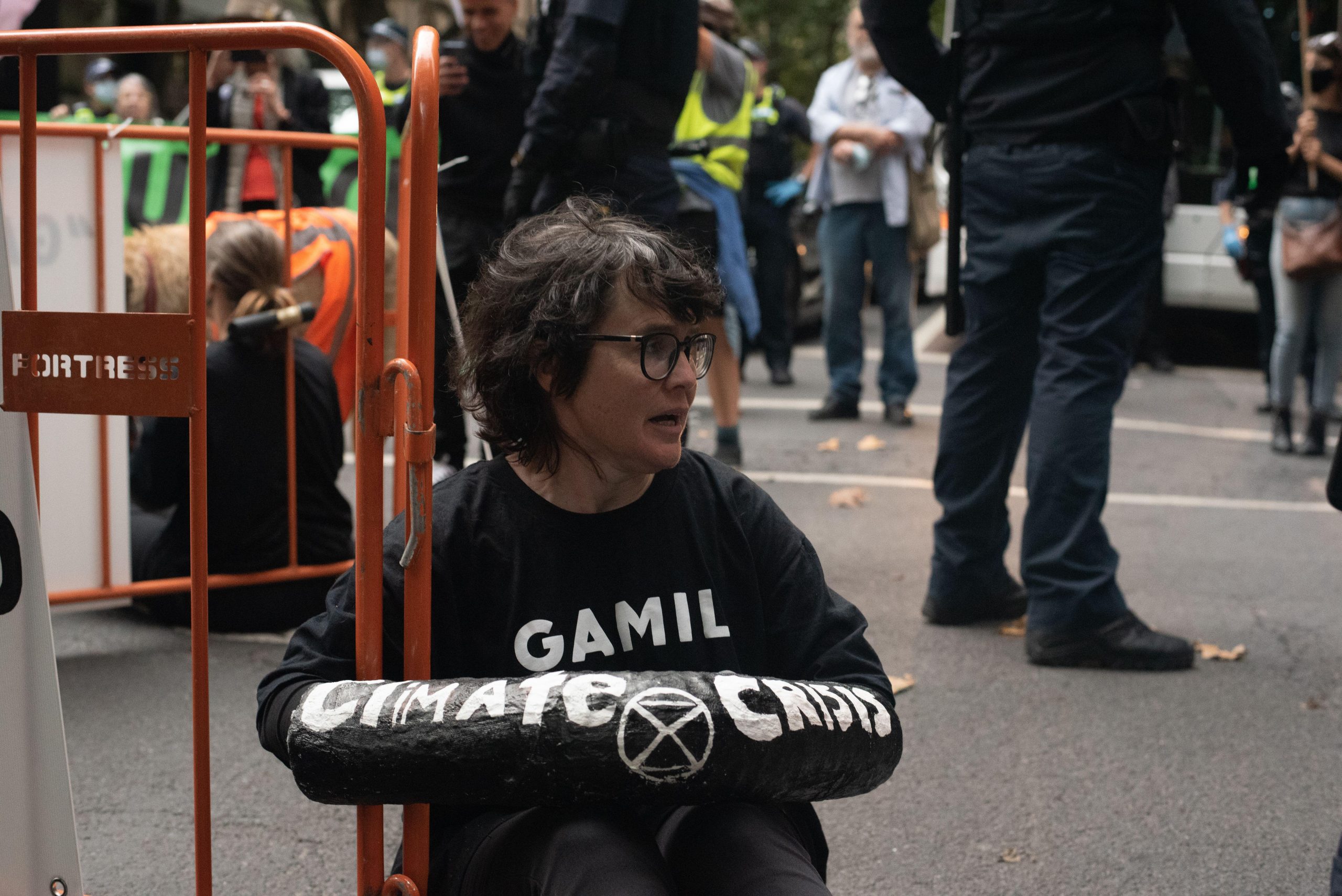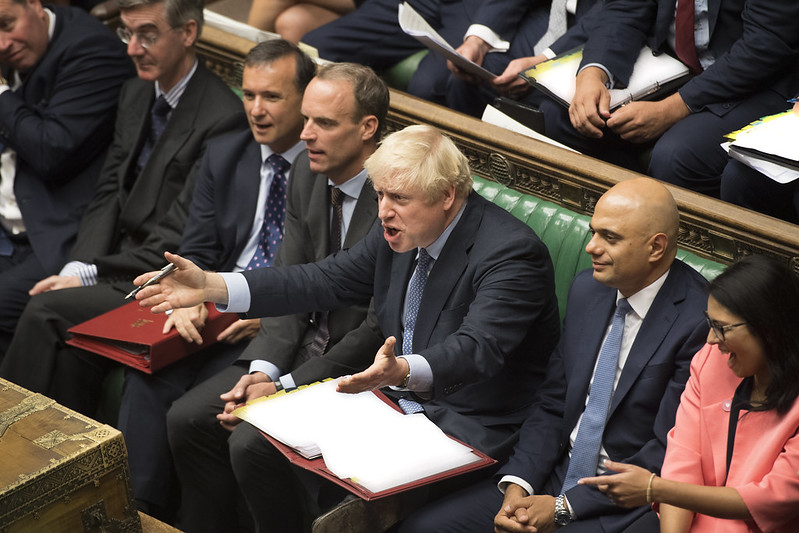
Has the left lost its way on liberties? Or has it always had an authoritarian streak? Francesca Klug asks how we reconcile equality with liberty
Why the left has become so illiberal is the question we are asked to address. I am tempted to say that the most interesting word in this question is “become”. How do you become illiberal if you have never really had liberalism in your DNA in the first place? Or as Alice said to the Mad Hatter, how can I have more when I haven’t had any yet?
The stock answer to the question about the illiberalism of New Labour is that it was due to a wrong-headed response to 9/11, or an obsession with responsibilities over rights as a way of distinguishing New Labour from old, or a courting of populism to keep the Murdoch press on side, or a combination of all three.
But there are two reasons why I think this is too simplistic a knee-jerk response.
First, because it misses the fact that in some ways our society is undoubtedly more tolerant than it was before New Labour, particularly on issues of equality and diversity.
Second, because it ignores a much longer and deeper association between illiberalism and the left (if by illiberalism we mean a lack of respect for the value of liberty and a lack of concern about the power of the state).
I blame it on Marx myself. The state was meant to “wither away,” wasn’t it? We weren’t meant to bother about it much.
It was a Miliband who corrected this disinterest in the state as a potentially oppressive force — Ralph Miliband of course, in 1969, in The State in Capitalist Society.
But whilst Labour may have been more Methodist than Marxist, we shouldn’t underestimate the influence of the intellectual tradition which never really saw the problem with the state — provided it was in the right, or rather left, hands.
When Marx mocked the “so-called rights of man”, and his collaborator Engels rejected any notion of a “human morality” which “transcends class antagonisms”, (to quote him directly) they dismissed out of hand a rich seam of what I would call liberal egalitarianism from the Levellers, to Tom Paine through to the Chartists.
This philosophical tradition – with its focus on democratic accountability, liberty and pluralism — was largely airbrushed out the Labour movement’s DNA, except as heroic stories of individual struggles.
After Marx, the purpose of the left was not so much to change the state but to control it (to paraphrase him badly).
Yet in the late 18th century, radical liberals routinely discussed the nature of political power in a democracy and what measures were necessary to keep the state’s oppressive and centralising tendencies in check.
One of the reasons, of course, why this seam of thought has been dismissed so lightly by socialists over the decades, is that it was associated with a liberalism antithetical to the state in principle and hostile, or indifferent, to its potential to address inequality.
But this was to overlook the rich tradition of liberal egalitarians, most famously Tom Paine, who in Rights of Man Part Two effectively produced a blue print for a welfare state 150 years before Beveridge, including a nascent child benefits and pension scheme.
In the early 1990s, when I found myself advising Tony Blair — as Shadow Home Secretary –– on the introduction of a bill of rights through what became the Human Rights Act (HRA), I tried to suggest that Tom Paine was a largely forgotten natural hero and mentor of the Labour movement, whose linkage of democratic reforms with civil liberties could make sense of the constitutional changes that John Smith was committed to and, importantly, the links between them. As you might have noticed, I didn’t get very far.
Early policy documents sought to tie support for the HRA with the Labour Party’s historic championing of the “oppressed and underprivileged against the power of the strong and powerful” (a direct quote from a 1993 policy paper).
But in 1996 Peter Mandelson wrote that the purpose of New Labour’s support for a bill of rights was to end accusations that Labour was “prepared to sacrifice individual rights on the alter of collectivist ideology”. Incredibly, according to this, the New Labour target in introducing the HRA was not the state but the trade unions.
For both New and Old Labour, in different ways, the state was the solution, but rarely the problem. By the time Labour was in power — and particularly after 9/11 –– successive Home Secretaries began to sound like the direct descendents of the 17th century authoritarian, Thomas Hobbes, with their frankly robotic mantra that the first duty of the state was to provide for the safety and security of the citizen.
Had they not heard that this premise had been the subject of hot debate for over 200 years? Had they never come across the Enlightenment revolutionaries and thinkers who maintained that on the contrary, the first duty of the state was to protect the rights and freedoms of men and women, including, but not solely their security?
In the words of the famous French Declaration “the aim of all political association is the preservation of the …rights of man”.
The post-war Universal Declaration of Human Rights (UDHR) remodelled this Enlightenment assertion for the modern age, to address the tensions between liberty and equality.
Influenced by the socialists and social democrats who largely drafted it, the Declaration attempted to develop a practical, as well as philosophical, answer to the age old question: when should individual freedoms be limited to a) protect the common good and b) enhance the equality of those who need the greatest protection?
One of the most irresponsible acts of the Labour government was to introduce the HRA — a direct descendent of the UDHR — without any serious attempt to explain or promote it in these terms, and then proceed to fight tooth and nail every case anyone ever took under it and introduce a raft of legislation which showed contempt for its values.
This not only egged on the tabloids but allowed some critics to claim the HRA was used as a smokescreen behind which the government introduced a whole host of illiberal measures. I’ve got a little list of them here and by my reckoning its 23 and counting.
Not all of these measures were entirely without any justification, of course. Many — like CCTV or the retention of DNA — open up complex and difficult dilemmas about freedom and security and reflect deep concerns about crime and anti-social behaviour which the poorest in society – who can’t hide in gated communities – look to the state to protect them from.
Evidence of a see no evil, hear no evil approach to the torture techniques used by some of our allies was shameful. But sometimes all it would have taken was greater regulation and a more stringent commitment to the presumption of innocence to avoid charges of authoritarianism.
Whilst the new Home Secretary, Theresa May, has repeated “the first duty of the state is security” mantra, at least she coupled this with “this is no excuse for an abuse of [counter terrorism] powers”.
Of course there has been a long and principled tradition of the left defending civil liberties — campaigning against successive Prevention of Terrorism Acts, miscarriages of justice and restrictions on protest — regardless of which party was in power.
But unlike right wing libertarians, the left’s critique of state power can sometimes sound selective and inconsistent, based on opposition to particular laws rather than a coherent analysis and set of principles about state power.
To conclude, a movement which stands for the many not the few, can — if it does not tread carefully — conflate populism with democracy. Sometimes it is the few who need protection from the many and it is ethical leadership from a movement driven by liberal egalitarian values which could provide this protection.
Whilst equality and liberty may not have as happy a marriage as Cameron and Clegg, as I’ve tried to suggest, they don’t need to fight each other to the death.
If New Labour saw its mission as reconciling social justice with economic prosperity, Renewed Labour needs to turn its attention to reconciling equality with liberty.
There’s a rich tradition to draw from.
It can be done!
This is an edited version of a speech given by Francesca Klug at the Index on Censorship Event “Why Has The Left Become So Illiberal! at the Compass conference 2010
Francesca Klug is Professorial Research Fellow at the London School of Economics





